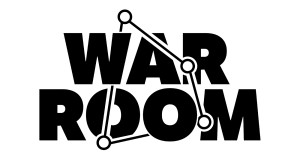Income Inequality Reaches Highest Level Ever Under Trump
September 27, 2019

Trump promised to fight for the forgotten men and women of this country, but he hasn’t. Instead, working families haven’t benefited from Trump’s economy and his policies have contributed to creating the largest income inequality gap ever recorded.
Income inequality in America has reached its highest level since the census started tracking it.
Washington Post: “Last year, income inequality in the United States reached its highest level since the Census Bureau started tracking it in 1967, according to federal data released Thursday.”
Why? Manufacturing and wages have slowed despite Trump’s promises, and his tax law favors the rich and big corporations.
Associated Press: “A variety of factors were at play, from a slowdown in agricultural trade and manufacturing to wages that haven’t caught up with other forms of income, economists say.”
NPR: “He also cites tax policies that favor businesses and higher-income families.”
Meanwhile, business investment declined last month, and revised numbers show investment in factories plummeted by more than 11% last quarter.
CNBC: “The Commerce Department said on Friday orders for non-defense capital goods excluding aircraft, a closely watched proxy for business spending plans, dropped 0.2% last month amid weak demand for electrical equipment, appliances and components, and computers and electronic products.”
International Business Times: “And the new numbers showed the recent hollowing-out of business investment was significantly worse than previously reported. Spending on factories and warehouses fell 11.1 percent from the first quarter, an even more painful plunge than the 9.4 percent drop reported a month ago.”
Consumer spending also declined last month, despite the White House pointing to it as evidence that their economic policies were working.
Kudlow: “I’m going to argue as I have, the consumer is booming, jobs are booming, wages are booming. Even savings is booming at the same time. This economy is strong.”
Bloomberg: “The U.S. economy cooled in August as Americans spent less than projected and companies cut capital-equipment orders, with below-forecast prices also adding to concerns that may support the case for further Federal Reserve easing. Consumer spending on goods and services, which accounts for about two-thirds of gross domestic product, increased 0.1% from July, the smallest gain in six months, Commerce Department data showed Friday.”